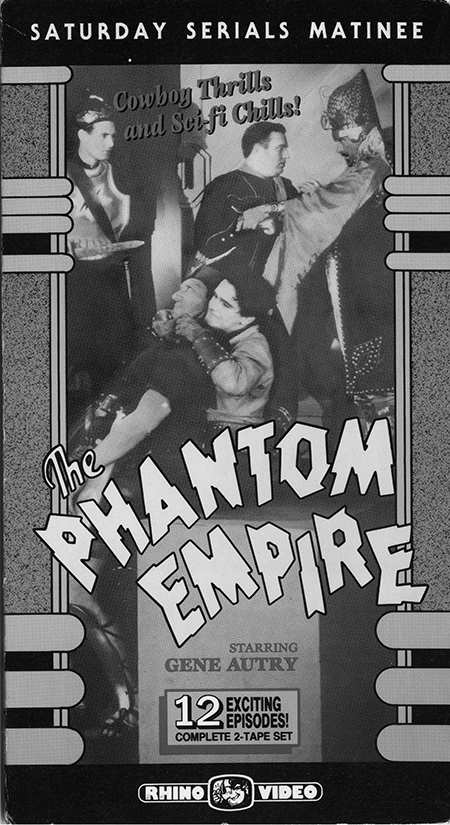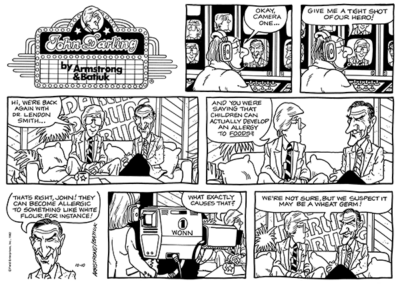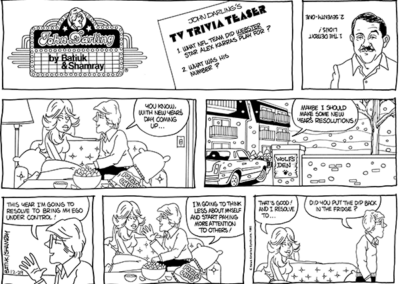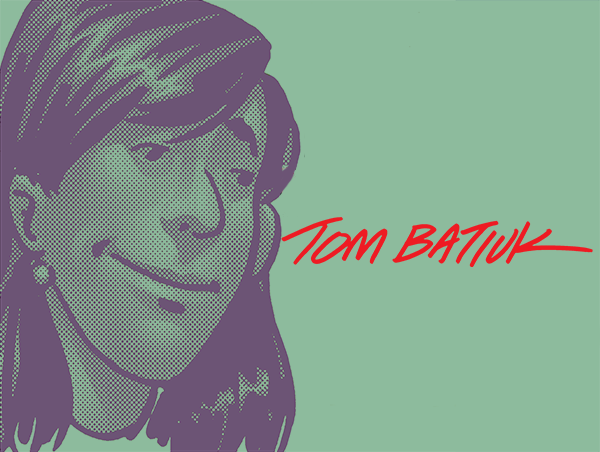During my time in elementary school, I also encountered the movie serial that would spin my head around. Every Friday afternoon, my elementary school in Akron would show old movie serials as a reward, I suppose, for having put up with another week of the drudgery and horrors of second grade. Whatever, it worked for me. For a mere dime, we were exposed to wonders that made going to school totally worth it. On one rainy Friday afternoon, we were treated to the first chapter of a serial that was unlike anything I’d ever experienced before. It was The Phantom Empire, starring Gene Autry, the Singing Cowboy, a serial so unique that it almost defies description. So I’m not even going to try. Instead, I’m going to quote from the blurb on the back of the DVD collection (yes, I now own a copy of this classic on DVD and VHS . . . still waiting on the Blu-ray):
Hidden deep beneath the earth is the lost civilization of Murania, ruled by the ruthless Queen Tika. When Gene Autry stumbles across the hidden city, the Muranians are determined to silence him and destroy his ranch to protect their secret world. The Queen’s masked army of thunder riders hunts down the singing cowboy and brings him to their subterranean city. Teeming with futuristic weaponry and machinery, the unfamiliar land resembles an alien planet. It looks like the last round-up for Gene when deadly robots attack him with flamethrowers. Autry’s daring and the Queen’s bloodlust escalates to a final confrontation which threatens the entire populace of Murania with total war.
Cowboys, thunder riders dressed in quasi medieval armor shooting futuristic weapons, robots with flamethrowers— The Phantom Empire viewed genre boundaries as mere inconveniences rather than limits. And here’s the kicker: Scattered throughout the story, the singing cowboy would periodically have to have to show up at Radio Ranch to sing on his radio broadcast or the evil bankers were going to foreclose on his ranch. It was this dose of realism (defined by me at the time as anything that wasn’t fun) juxtaposed with the over-the-top fantasy elements that really caught my attention. I became fascinated with the idea of taking what was considered to be a low art form and creating something of substance within those confines, of trying to take what others considered junk and turning it into something more. That thought continued to inform my cartooning choices for the next fifty years. It’s hard to overestimate the impact that The Phantom Empire has had on my developing brain.
* From the introduction to The Complete Funky Winkerbean Volume One






